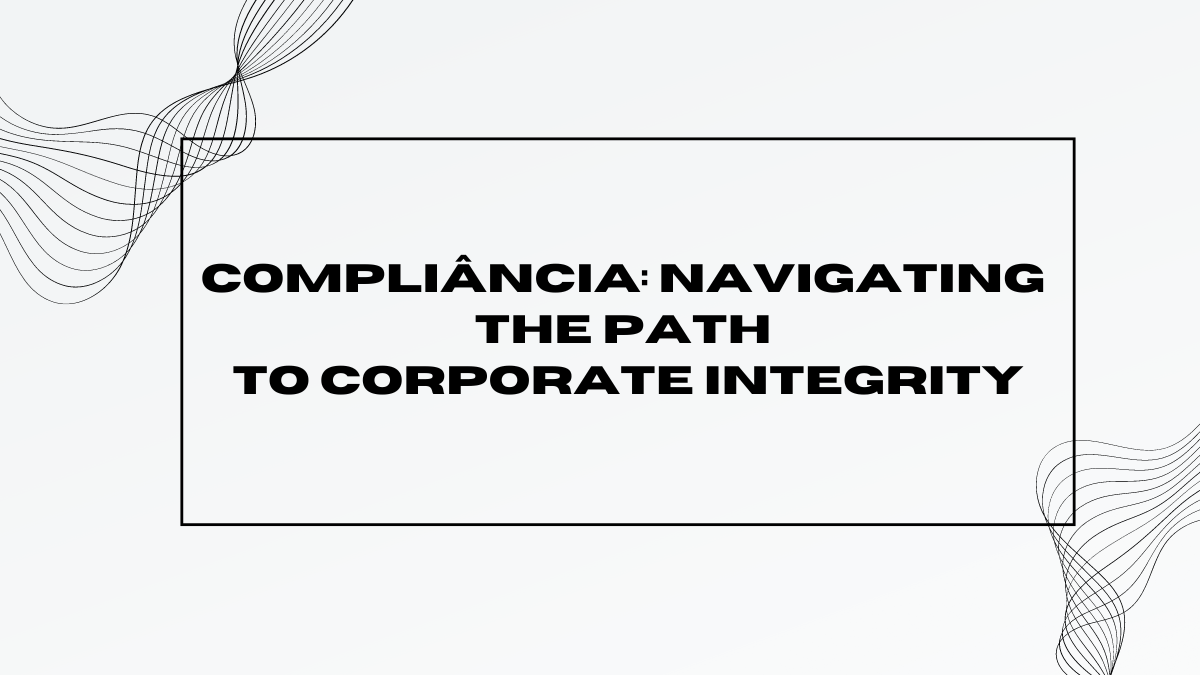Introduction
In today’s complex business environment, maintaining ethical standards and adhering to regulations is paramount. This is where compliância plays a crucial role. Compliância, or compliance, is the process of ensuring that companies follow laws, regulations, and internal policies. It helps businesses avoid legal issues, foster trust, and promote a culture of integrity. This article explores the various facets of compliância, its significance, and how it can be effectively implemented within an organization.
Understanding Compliância
What is Compliância?
Compliância refers to the adherence to laws, regulations, guidelines, and specifications relevant to a company’s operations. It encompasses a wide range of practices aimed at ensuring that an organization operates within legal and ethical boundaries. Compliancia involves understanding and implementing rules, monitoring compliance, and correcting any deviations.
The Evolution of Compliância
The concept of compliancia has evolved significantly over the years. Initially focused on legal compliance, it now includes ethical conduct, risk management, and corporate governance. This evolution reflects the growing recognition that businesses must operate responsibly and transparently to build trust and sustain success. Is this article beneficial to you? Discover more on our blog.
The Importance of Compliância
Legal Protection
One of the primary benefits of compliancie is legal protection. By adhering to laws and regulations, companies can avoid fines, penalties, and legal disputes. This not only protects the organization but also its stakeholders.
Building Trust
Compliancia fosters trust among stakeholders, including customers, employees, investors, and regulators. When a company consistently demonstrates ethical behavior and transparency, it enhances its reputation and builds lasting relationships.
Risk Management
Effective compliancie practices help identify and mitigate risks before they become significant issues. By proactively addressing potential problems, companies can avoid financial losses and damage to their reputation.
Sustainable Growth
Companies that prioritize compliancia are better positioned for long-term success. Ethical practices and regulatory adherence contribute to a stable and sustainable business environment, promoting growth and innovation.
Key Components of Compliância
Regulatory Compliance
Regulatory compliance involves adhering to laws and regulations specific to an industry or region. This includes understanding legal requirements, implementing necessary measures, and regularly reviewing compliance status.
Ethical Standards
Maintaining high ethical standards is a crucial aspect of compliancie. This includes promoting honesty, integrity, and fairness in all business activities. Ethical conduct helps prevent corruption, fraud, and other unethical practices.
Internal Policies
Internal policies play a vital role in compliâncie. These policies outline the rules and procedures employees must follow to ensure the organization operates legally and ethically. Regular training and communication are essential to reinforce these policies.
Monitoring and Auditing
Continuous monitoring and auditing are essential for effective compliâncie. This involves tracking compliance activities, identifying gaps, and implementing corrective actions. Regular audits help ensure that compliâncie measures are being followed consistently.
Implementing Compliância in Your Organization
Developing a Compliancie Program
Creating a comprehensive compliância program is the first step toward effective implementation. This program should outline the company’s commitment to compliancie, define roles and responsibilities, and establish procedures for monitoring and reporting.
Training and Education
Training and education are critical components of compliâncie. Employees must understand the importance of compliâncie and be aware of the laws, regulations, and policies relevant to their roles. Regular training sessions help keep compliancie top of mind and reinforce ethical behavior.
Leadership Commitment
Leadership plays a crucial role in promoting complianciea. When leaders demonstrate a commitment to ethical practices and regulatory adherence, it sets a positive example for the entire organization. Leaders should actively participate in compliâncie initiatives and encourage a culture of integrity.
Effective Communication
Clear and open communication is vital for compliâncie. Employees should feel comfortable reporting concerns or violations without fear of retaliation. Establishing a confidential reporting system and encouraging transparency can help identify and address compliâncie issues promptly.
Challenges in Compliância
Complex Regulatory Environment
Navigating the complex regulatory environment is a significant challenge for many organizations. Laws and regulations can vary widely by industry and region, making it difficult to stay compliant. Regular updates and expert guidance are essential to manage this complexity.
Resource Constraints
Implementing and maintaining a robust compliancia program requires resources, including time, money, and personnel. Smaller companies may struggle to allocate sufficient resources, making it challenging to achieve full compliance.
Cultural Differences
For multinational companies, cultural differences can pose challenges in implementing a uniform compliancie program. Different cultural attitudes towards ethics and compliance may require tailored approaches to ensure consistency across regions.
Evolving Regulations
Regulations are continually evolving, requiring companies to stay informed and adapt quickly. Keeping up with changes and ensuring that compliance measures are updated accordingly can be a daunting task.
Best Practices for Effective Compliância
Risk Assessment
Conducting regular risk assessments is essential for effective compliancia. This involves identifying potential risks, evaluating their impact, and implementing measures to mitigate them. A proactive approach to risk management can prevent compliances issues before they arise.
Automation and Technology
Leveraging technology can streamline compliances processes and improve efficiency. Automated compliance management systems can help track regulations, monitor activities, and generate reports. Technology can also facilitate training and communication, making compliâncie more accessible.
Engaging Stakeholders
Engaging stakeholders in compliância efforts can enhance effectiveness. This includes collaborating with regulators, industry groups, and other organizations to stay informed about regulatory changes and best practices. Engaging employees and encouraging their participation in compliancie initiatives can also foster a culture of integrity.
Continuous Improvement
Compliâncie is an ongoing process that requires continuous improvement. Regularly reviewing and updating compliancie programs, policies, and procedures ensures they remain effective and relevant. Soliciting feedback and learning from past experiences can help refine complianci efforts.
Conclusion
Compliância is more than just a regulatory requirement; it is a fundamental aspect of responsible and sustainable business practices. By ensuring that organizations operate within legal and ethical boundaries, compliancia helps build trust, manage risks, and promote long-term success. Implementing an effective compliancia program requires commitment, resources, and continuous improvement, but the benefits far outweigh the challenges.
As the business landscape continues to evolve, the importance of compliancie will only grow. Companies that prioritize compliancie will be better positioned to navigate complexities, seize opportunities, and thrive in an increasingly regulated world. Embrace compliancie, and pave the way for a future built on integrity and trust. Enjoyed this article? Dive into more posts on our blog.




